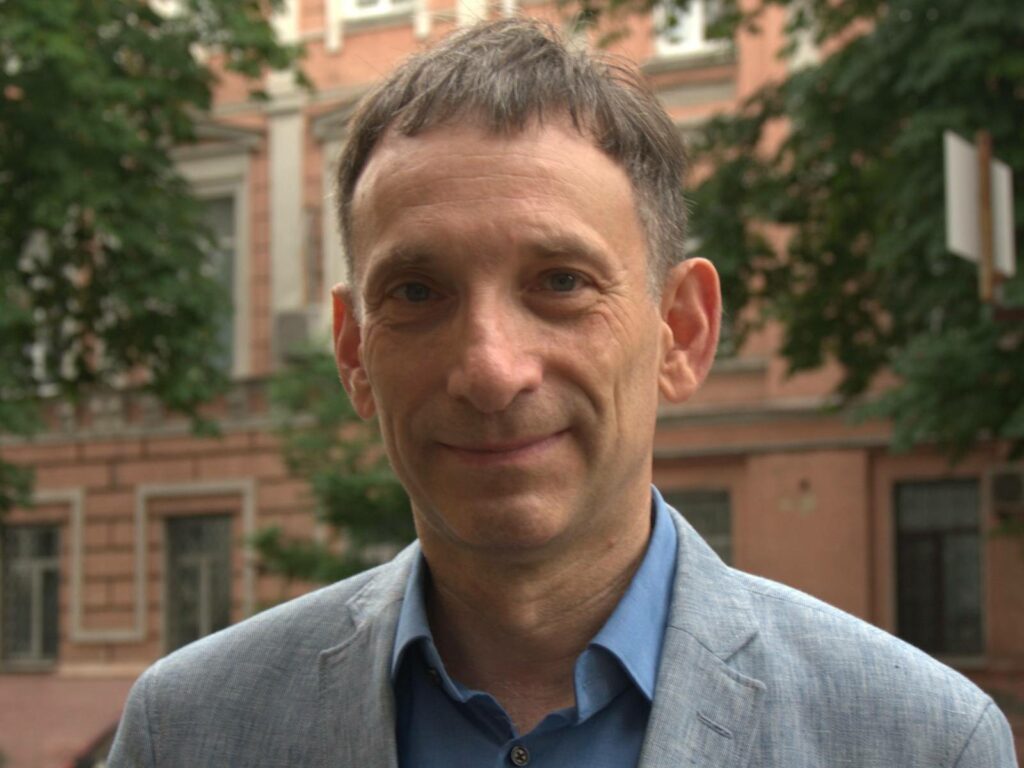The https://english.atlatszo.hu use cookies to track and profile customers such as action tags and pixel tracking on our website to assist our marketing. On our website we use technical, analytical, marketing and preference cookies. These are necessary for our site to work properly and to give us inforamation about how our site is used. See Cookies Policy
Kyiv analyst: Ukraine’s neighbors are at a crossroads
Using historical examples, Vitaliy Portnikov argues that it is an illusion to expect Moscow to stop its aggression even if its current demands are met. According to the popular Ukrainian analyst, only a firm, unified posture by Europe and the United States can reinforce faith in transatlantic cooperation and collective security.
The Ukrainians hoped that after the Russian drone incursions into Poland, NATO would move beyond mere declarations. And neighboring countries might mobilize more resources in support of Ukraine. It seemed like this could mark the awakening of Central Europe. However, the opposite has happened. The attack did not act as a unifying force; instead, it has created new divisions.

In the neighboring countries, conspiracy theories have begun to spread: “This was a Ukrainaian provocation,” “It is a trap for the West,” “We must negotiate with Moscow.” The same arguments that the Kremlin’s propaganda has been pushing for years have now become part of public discourse in Central Europe.
The Sudetenland lesson
We’ve seen something similar in Europe before. When Hitler demanded the Sudetenland in 1938, politicians and journalists in many European capitals looked for excuses for the Germans and blamed the Czechs – who, they said, were demanding “justice” for the German minorities. The louder the German threat became, the harsher the accusations against Prague. The aggressor was accepted as a reasonable negotiating partner. That ultimately dragged Europe into a world war.
The same logic of appeasement repeats itself when Kyiv – not Moscow – is blamed for drones crashing into Poland or Romania.
And the consequences may end up being the same. Putin will be encouraged to take further aggressive steps if Central Europe shows fear.
Balkan lessons
The Balkan countries have had similar experiences. The West tried to treat Milošević’s aggression as an “internal conflict.” The attempt to find compromise and the refusal to intervene led to Srebrenica, one of the worst mass murders in postwar Europe.
Milošević was nonetheless invited to the Dayton peace talks on Bosnia and Herzegovina’s future.
The results of that agreement are known: a state that is practically nonfunctional, and a prolonged Kosovo crisis.
When Iranian Shahed drones appeared over Poland and Romania, the insinuation that “this is not our war” carries the danger of a new disaster. It is an illusion to believe that someone whose soldiers massacred civilians in Bucha can offer viable proposals to the world.
A tactic of chaos
The drones flying into NATO territory do not pose a great danger directly. However, the attackers are targeting social cohesion – trust between parties, between governments and their citizens, between the military and society. The Kremlin understands that chaos and distrust can destroy Europe faster than missiles.
A fragmented region is easier to deal with piece by piece. Especially when in some countries extremist politicians come to power – those willing to make compromises with Moscow at the expense of their neighbors’ interests.
What could be the solution?
In response to these challenges, Ukraine sees EU integration, good-neighborly relations, and a security system built on solidarity, not fear as the right response. Ukraine is not merely a victim of aggression: it represents the only realistic future vision for Central Europe.
However, the most important actor is needed: the United States.
European countries can debate for a long time, weighing the consequences of sanctions or energy dependence – but only Washington can turn fear into decisive action. That happened after 1945 – and it needs to happen now.
It must be understood by America and Europe alike that Shahed drones over Poland and Romania are not isolated incidents but trials of transatlantic solidarity’s viability. If the response is again halfhearted, Russia will take further steps. A firm response would be a moment of rebirth for the West – returning confidence and belief in collective security.
Is there enough courage to treat the attacks not as a “Ukrainian problem” but as events affecting the region’s future? Can the neighboring states at this crossroads choose the path of solidarity, not fear?
Written by Vitaly Portnikov, translated by Zalán Zubor. The original Hungarian version can be found here. This article was commissioned by the Central European Strategic Institute (ICES) in Uzhhorod and produced with the support of the European Union. The author’s views do not necessarily reflect those of the EU.

